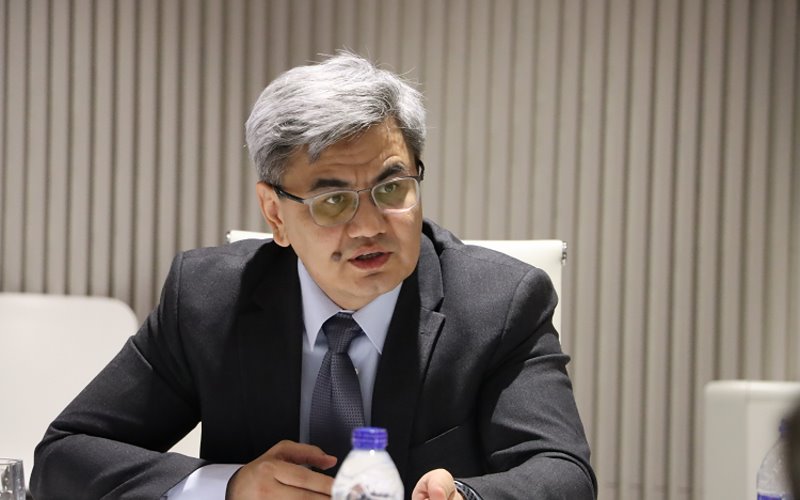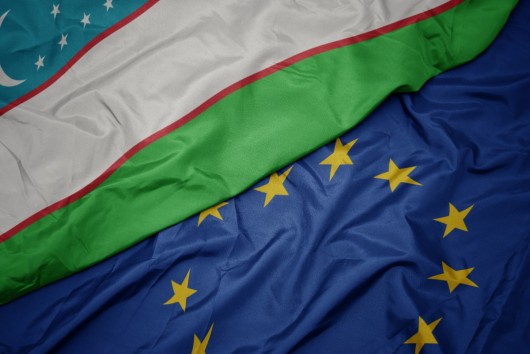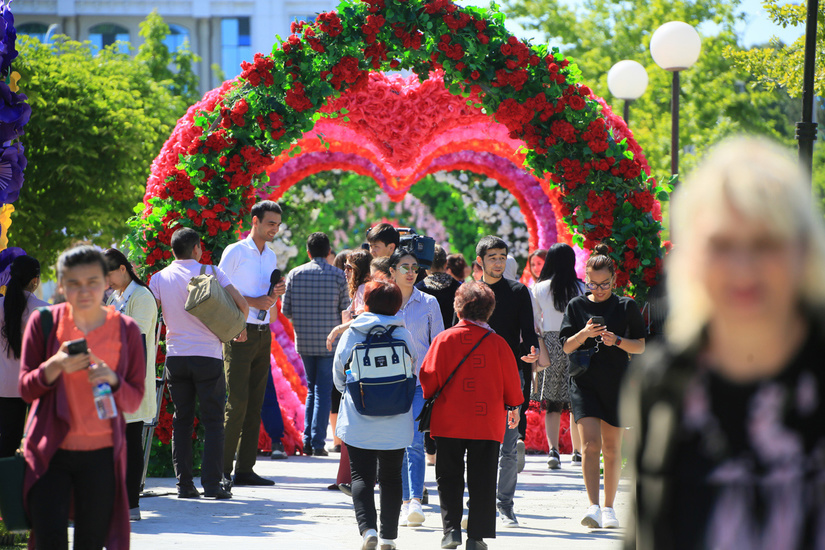Promoted by Uzbekistan Embassy in Brussels
These figures indicate the growing interest of foreign investors and important factors contribute to this. Firstly, unpredictable situations are taking place internationally, which are becoming a serious test for the global economy. This forces investors to look for more reliable options for their investments. As the President of Uzbekistan said in his speech at the forum, "I am convinced that in such conditions of growing contradictions, our meeting today will serve to strengthen bilateral and multilateral cooperation, open new business opportunities."
Another important factor of investors' interest is the state of the economy and the prospects for its development. In the post-pandemic period, amid the turbulence of the world economy, Uzbekistan is steadily gaining economic growth.
The country’s gross domestic product increased by 5.5% in the first quarter of 2023. Inflation slowed down in the first three months to 2.4% (in January-March 2022 it amounted to 2.9%). The business activity index in March this year increased by 4.2% compared to the previous month, and by 11% compared to the same period last year. Current business assessments have improved significantly and the share of negative assessments has decreased by 4%.
The World Bank has recently raised its expectations for the economy of Uzbekistan to 5.3% and the IMF to 5.2%. CERR expects a more confident growth to 5.65% in the first half of the year. Thus, the economy and its development look very attractive, which increases investors in our country.
Investment climate in dynamics
The favourable investment climate has been changing for the better in recent years. At the TIIF-2023, it was stated that over the past year, systemic reforms aimed at further liberalization were accelerated, thereby improving the investment climate.
Regarding taxation, VAT has been reduced from 20 to 12%. The income of foreign investors in the form of dividends on shares is exempt from income tax for a period of 3 years, for them the income tax rate has also been reduced from 20 to 12%. With foreign trade, customs duties on raw materials and goods of more than 7,000 items have been abolished for investors and a simplified procedure for processing in the customs territory has been introduced.
As part of the administrative reform, a holistic system of working with investors has been introduced. The Ministry of Investment, Industry and Trade has established a system of assistance from the initiation of the project to its launch on the principle of "one window".
Conditions for the purchase of real estate, entry-exit and residence in Uzbekistan have been radically simplified for foreign investors. The status of administrative courts has been raised, whose powers have been expanded. The mechanisms for applying to the mandatory execution of decisions of international arbitration courts are legally fixed. This year, the activities of the International Commercial Court are being established.
The new version of the Constitution is also aimed at strengthening guarantees for the protection of investors' rights, according to which the state undertakes obligations to ensure a favourable investment and business climate, the inviolability of property, the development of market relations, the creation of conditions for fair competition, and the independence of the judicial system.
New opportunities
In his speech at the investment forum, the President of Uzbekistan proposed five new directions for expanding cooperation with foreign investors.
1. Uzbekistan will continue the course of transition to a "green" economy. This year, more than 2,000 MW of capacity will be commissioned, and next year it will be 8,000 MW. It is planned to launch the production of solar panels, wind turbines, inverters, and other electrical equipment, which opens up opportunities for investments of $8 billion.
2. Public-private partnership. In the process of reforms, private investment began to be actively attracted to previously closed areas. Opportunities have opened up in the aviation sector, where five private airlines have been formed and Samarkand International Airport has been transferred to external management. This year, the management of airports in Andijan, Namangan, Bukhara and Urgench is transferred to the private sector and transformations in the railway industry are opening up opportunities.
3. This year, the program "1 thousand + 1 thousand + 40" on the privatization of state property was adopted. This means that state shares in 1,000 enterprises and another 1,000 objects of state property will be put up for auction. Forty enterprises of strategic importance for the economy will be put up for IPO.
4. Industrial development. Currently, the textile, leather and footwear industries, the production of building materials, electrical engineering, mechanical engineering have a sufficient raw material base and qualified personnel. There are prerequisites for doubling the volume of production and exports.
5. Economic cooperation with neighbouring countries. Joint investment funds are being created, major regional projects are being implemented in industry, energy, transport and water management.
At panel sessions
The new areas of cooperation outlined by the head of state are becoming in demand and relevant, which was actively discussed on the sidelines and panel sessions of the forum.
In particular, in the direction of expanding cooperation with neighbouring countries, the ITFC held a round table of partners of the Trade Connect Central Asia+ program, which presented the TCCA+ program focused on Uzbekistan, Azerbaijan, Kazakhstan, Kyrgyzstan, Tajikistan and Turkmenistan.
From the perspective of industrial development, there was a discussion at the session "The Investment Potential of the Textile, Leather and Silk Industries" including improving the competitiveness of these industries. At the session "Chemistry: A Look into the Future" it was noted that the chemical industry strives to find a balance between sustainability and profitability.
Conclusion
It can be stated that the TIFF-2023 was successful and demonstrated the interest of foreign investors in Uzbekistan as a reliable partner in investment cooperation.
There is another factor. Our sovereign foreign policy based on our own national interests, which provides for non-participation in different blocs, neutral mutually beneficial economic relations with all countries without political preferences, as well as peace and stability achieved in the republic.
At a time when geopolitical differences are growing in the world which negatively affects the markets of many countries and global value chains, Uzbekistan is gaining the trust and respect of investors as a reliable and stable partner.

Obid Khakimov, Director of CERR
Article by Obid Khakimov, Director of the Center for Economic Research and Reforms under the Administration of the President of the Republic of Uzbekistan
The Center for Economic Research and Reforms (CERR) under the Administration of the President of the Republic of Uzbekistan is both a research center and an accelerator of socio-economic reforms. CERR provides comments and advice on suggestions for socio-economic programming and policies by the Ministries to solve the main development issues in a swift, operational and efficient way. CERR is in the Central Asian Top-10 by the Global Go To Think Tank Index Report 2020 (USA)


